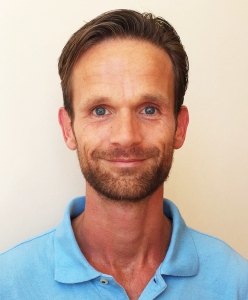
You want to start working on yourself and heard good stories about meditation and mindfulness. What is the difference and what do each of them bring you?

Meditation has many effects for as well the mind as the body and is being practised for tens of centuries in different forms all over the world. The origin of meditation as we know it lies in Asia. When scientists discovered the many interesting effects of meditation in the sixties and seventies of last century, mostly by studying the brain of buddhist monks, the interest in the western part of the world was awakened. Because meditation nowadays connects perfectly to many of the biggest challenges for the modern human being, it only grew further the last years.
In the Asian traditions meditation originally was used exclusively for personal development. Is was a tool to come to maximal realisation of the inner qualities and to obtain an optimal mental health. In spiritual traditions and religions it is still mainly used for that purpose. People that start meditating these days are mainly looking for inner peace and balance. Which makes sense looking at our busy and demanding jobs and scedules and growing numbers of stress and burn-out.
When scientific research started in the West in the seventies, meditation wasn’t a very ‘sexy’ word.It was strongly linked to religion and ‘mindfulness’ was much more neutral and therefore a lot of the research of meditation was done using that name. Mindfulness became a sort of seperate practice that arose from that. This is mainly because of the work of Jon Kabat-Zinn. Inspired by the effects of meditation, in 1979 he designed the eight week Mindfulness-Based Stress Reduction program to give the medical world access to the effects of attention training. The mindfulness courses that we know today are almost all based on that. Now, forty years later, there is a lot of scientific support for the positive effects of this program for people with chronic pain, stress, anxiety and other problems and it is the best researched form of meditation by modern science.
Mindfulness mainly focusses on what the Western world is mostly looking for; peace of mind and internal balance. The word mindfulness means as much as being consciously present with what is in this moment. This very important basic ingredient of every form of meditation, is for a big part responsible for the calming effect of meditation on the mind. When you leave everything that has been and still has to come for a moment and only focus on what is actually here in this moment, the mental activity decreases strongly.
Mindfulness and meditation have many commonalities. Without mindfulness there is no meditation and meditation is training of mindfulness. The training to come to the present awareness in the now is very important. To be mindful isn’t that isn’t very hard. To remain in that state is a whole different ball game. Everybody that ever meditated will recognise and confirm that. Even being present for a few seconds without being distracted is almost impossible if you have no training in meditation or other form of mental or attention training. And even with experience it is a big challenge. That’s why training is so important. If you start with it you’ll notice how quickly you run into the limitations of your capacity to rest your attention in one place. Just like you run into your physical limitations when you start running. In both cases though you’ll notice that if you train it, you will quickly get better at it and able to do it for longer.
Mindfulness is an excellent way to come to more peace of mind, what a lot of people in our modern society are longing for. I myself did the eight week mindfulness course and thought it was very good. In my first book, ‘Meditation, your daily mini holiday’, I offer people that want to start meditating mindfulness exercises for daily life because it is an excellent preparation for meditation.
Mindfulness courses focus on becoming more consciously aware through meditation as well as by integrating and applying that in daily life. The second is called ‘informal practice’. Most people that do the mindfulness course work most with the applying it daily. The ‘meditation homework’, which is at most mindfulness courses between around 45 to 60 minutes per day, often is skipped. Which is kind of understandable due to the busy schedules we have. Without propper training it is amost impossible to get to real results though. You can compare it to the effect of a moments of five push ups during the day or to translate a word into a foreign language every now and then. It will bring the focus to your goal and also benefit you, but without proper training by going to the gym and train till physical fatigue or taking a complete class emerging into a language, it won’t result in a lot of results. Same goes for meditation.
The power in the mindfulness courses is in the training by meditation, but in my opinion that often doesn’t get enough attention. People naturally tend to chose for the quick fix (wherefore there often is more focus on the short working medication like the ones that lower cholesterol and blood pressure, in stead of the more structural solutions like lifestyle changes) and applying the short mindful exercises during the day give you short feeling of calmness and wellbeing. Especially if you are asked to do an hour of meditation daily. Which is often less during meditation courses. Also mindefulness courses offer in my opinion a lesser quality in meditation training. The criteriumto become a mindfulness trainer often isn’t years of meditation experience, especially now it became so well known and commercially interesting. The part of the informal practice is often easier to learn and teach. I defenitelly am not saying mindfulness instructors aren’t skilled in meditation, with meditation teachers there is more guaranteed of that.
Personally I choose to give meditation and not a mindfulness courses. The main reason for that is that meditation brings you quicker to a deeper level. By really taking the time to develop the skill to the max, is the fastest way to results. That often also aim a bit wider than just the reduction of stress or mental relaxation. In the words of an old meditation teacher : ‘to use meditation only to calm the mind, is like using a diamond to support an uneven leg of a table’. The break that meditation gives you also leads to the calming of the mind, but because it often is more aimed at training, the effect often is stronger and deeper.
As well meditation as mindfulness are excellent tools to work on yourself. Meditation still is a bit less mainstreamand that often prevents that the focus shifts to short term relaxation in stead of the deeper effects of the methods that have developped itself over the many centuries. And also with meditation training you’ll experience quick results in your daily life. Just like in a short time you will notice you feel better and fitter after you started working out. As well as you feel less tired with cycling to work and climb the stairs easier when you do physical training, you’ll notice that you feel better and have more overview, clarity and balance in your life when you do meditation.
Investing in yourself also is an ongoing process. What I often miss with a lot of the mindfulness and meditation courses is the aftercare. You received excellent tools and by applying them and mainly keep applying them, you’ll get more and more results. But what happens when the course is over? Often it is not easy to maintain a regular practice. Also meditation stays a challenging training with many pitfalls. Like with every skill, guidance by someone with experience will keep you on the fastest and most direct path to results. For this reason I organise weekly meditation evenings where there is a low treshhold for people to maintain their practice and get answers to their questions. They are of course also accessible for people that did a mindfulness course. You are always welcome. Maybe until soon!
For courses, workshops, the open meditation evenings or meditation for business, here at Meditatie Amsterdam you can find it all. Even if you want to dive into meditation without leaving your house we have options like the audio meditation here on my website, my blogs or my book ‘Meditatie, je dagelijkse minivakantie’ (that unfortunately is only available in Dutch). We love to help you!
Do you have a question about meditation?
Mail me and who knows it will be the subject of my next blogpost!
Meditation trainer and autor of ‘Meditatie, je dagelijkse minivakantie’
More information about meditation you can find here on www.meditatie.amsterdam and our Facebook page


Do you also want to benefit from all the research and experience I gathered for many years to get to the core of meditation and translate it into contemporary, accessible and practical methods to get the best out of yourself? If you would like to work with me, apply now for one of my next activities.
Beginner or more experienced, I am happy to help you on your way towards more inner peace, balance, energy, clarity and freedom of mind, with methods that can have lifechanging effects within weeks. See you soon!
Roel Wilbers – meditation trainer and author of ‘Meditation, your daily mini holiday’